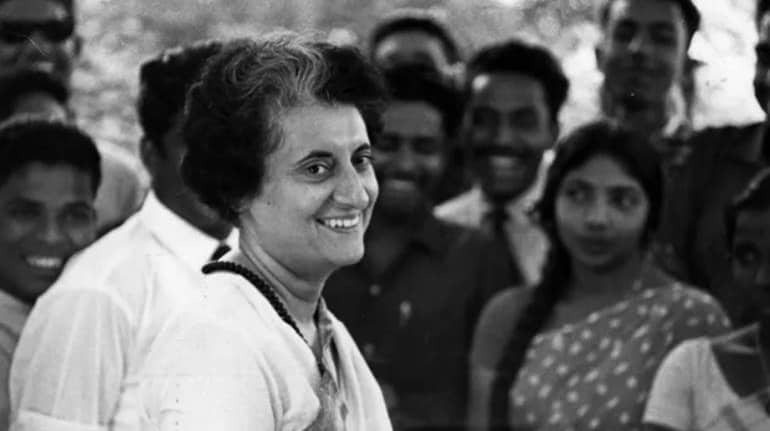
One Nation One Election: A high-level committee headed by former President Ram Nath Kovind on Thursday recommended holding simultaneous elections for the Lok Sabha and state assemblies. Besides, it has also been recommended to hold local body elections simultaneously within 100 days. The committee has submitted its report of more than 18,000 pages to President Draupadi Murmu. The committee has said in it that holding simultaneous elections will promote the development process and social cohesion, deepen the foundation of democratic tradition, and help in realizing the aspirations of "India that is Bharat".
The committee has recommended that the Election Commission of India in consultation with the state election authorities prepare a single voter list and voter identity card. Apart from this, the committee has also recommended several constitutional amendments, most of which will not require the approval of the states.
Today the debate regarding 'one country one election' has become very intense. Congress opposes this decision the most. Because he believes that if this happens, then his power can be snatched from the remaining states also. Whereas the ruling BJP is of the view that this can reduce the expenditure incurred in various elections.
When Congress changed the pattern of simultaneous elections
Everyone has their own arguments, but one fact is that the work of conducting separate elections in the country was also done by the Congress government. Between December 1951 and February 1952, the first simultaneous elections for both the Lok Sabha and state legislative assemblies were held in independent India.
This system continued until the late 1960s, but when unstable non-Congress state governments began to fall, mid-term elections were held, thus breaking the pattern of simultaneous elections for the Lok Sabha and the states.
Perhaps very few people would know that the Congress's Indira Gandhi government had separated the Lok Sabha elections from the assembly elections by holding the Lok Sabha elections a year ahead of schedule in 1971. The then Prime Minister did this to reduce the pressure of CPI and some other parties on his government.
Why did Indira Gandhi conduct elections before time?
When Indira Gandhi took charge of the Congress after the demise of Nehru and Shastri, not only was her stature in the party decreasing, but even the old leaders were not ready to give her a free hand. On the other hand, the graph of Congress was also falling rapidly. In such a situation, Indira not only had to manage the falling Congress, but also had the challenge of maintaining her stature in it.
In a paper in the Asian Survey Journal in 1971, Myron Weiner, an American political scientist, suggested that there were several reasons for the decline in the popularity of the Congress in 1967 - the deaths of two prime ministers followed by two wars, then drought, rising Inflation, increasing corruption and much more...
In 1969, Indira Gandhi broke the Congress into two and effectively ended factionalism within the party by winning over a large section of the Congress to her side and retaining the support of the CPI, DMK, and others in Parliament.
He took a populist stance and moved towards the left, nationalized the banks, and through an executive order abolished the privy purse or royal allowance given to the former princes.
However, this matter reached the Supreme Court and the apex court overturned the decision to ban the royal allowance. Indira then sought the dissolution of the Lok Sabha, choosing to go to the people for support for her policies.
There was another political reason for this also. If you look at the political events happening in the country at that time, you will know that governments were falling in many states every day. In such a situation, Indira Gandhi felt that her government at the Center might also fall at any time. Therefore, she also wanted freedom from the pressure of the leftists. Once the central government fell, political and administrative power would have gone out of Indira Gandhi's hands. This would have been a matter of great concern for him.
Apart from this, it is also said that due to some unknown and undisclosed reasons, the then Prime Minister was in a hurry to hold elections. He was beginning to feel that his catchy slogan of 'Garibi Hatao' might not garner votes till a year later i.e. 1972. That is why mid-term elections for the Lok Sabha were held in 1971 itself.
32 out of 47 political parties supported
Now the committee led by the former President has said in its recommendation sent to the President that most of the political parties in the country have given their support to the 'One Nation One Election' system.
The report also states that 47 political parties gave their opinion to the committee on One Nation, One Election. Of these, 32 have expressed their vote in favor and 15 in opposition.
It said, "The 32 supporting parties have also strongly advocated adopting the option of 'one country one election' to save limited resources, maintain social cohesion, and accelerate economic development."
Apart from this, the side of the opposing parties was also presented in the report. It said, "At the same time, the parties opposing it raised the issue that adopting this option would violate the basic structure of the Constitution. It would be undemocratic, contrary to the federal structure, alienating regional parties and increasing the dominance of national parties." And it will result in President's rule."
Read More: 'They go to heaven but don't return home...' Congress MP posts emotional post on Khamenei's death
--Advertisement--

 Brijendra
Brijendra Share
Share



